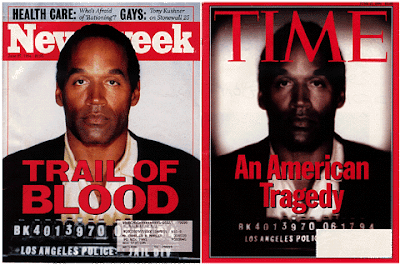
I’ve been doing a number of presentations, articles and interviews lately about the controversy over photo manipulation. One of the best discussions was at a conference in Barcelona. You can read what Kristin Sukalac had to say about it in an article titled 'Ethics and Images' in PR Conversations. Also published in the Italian version, Ferpi.
I think the topic will soon heat up, with the annual report photo being the first image held under the legal microscope.
Here’s a couple of excerpts from an upcoming article I’m writing for the IABC (International Association of Business Communicators) publication, Communication World:
Some people say any alteration of an image is a lie. They think of photos as uncensored slices of truth that should never be soiled by human intervention. They argue that at the moment of capture, photographs are pure undisputable facts void of prejudice. They believe that manipulating a photo is the same as manipulating the truth. These same people hark back to the good old days when you could ‘trust’ what you saw in a photo to be a totally accurate rendition of reality. They tend to think of a camera as a dumb machine capable only of emotionless exact duplication of its surroundings. They forget that it’s a human that decides where to point the lens and when to push the button.
The fact is every image ever captured is in some way a distortion of reality. The mere act of deciding what segment of a scene to include or exclude from a frame can vastly affect a photo’s integrity. For example, you see a vast field of beautiful red tulips but one of the plants is dying. If you focus your camera only on the sick plant and exclude the healthy ones you have not digitally altered the image but you have warped the audience’s perception of the scene. The resulting unretouched image is an intentionally misleading representation of the field of tulips. It makes no difference if the decision to crop out the healthy plants happened in camera at the moment of capture or afterwards in Photoshop. In other words, it’s not the technology that is at the heart of the photo manipulation controversy, it’s the ethics behind the manipulation.
For more on the subject, check out the results of an interview Chris and I did on photo ethics with communication wizard Marc Wright on a recent trip to London - Simply Communicate. I'll be covering ethics and just about everything else related to corporate photography in a couple of sessions at the Ragan Corporate Communicators Conference in Chicago.
With post-Enron sensitivity alive and well, this topic is not going away anytime soon. So is Photoshop evil? What say you?